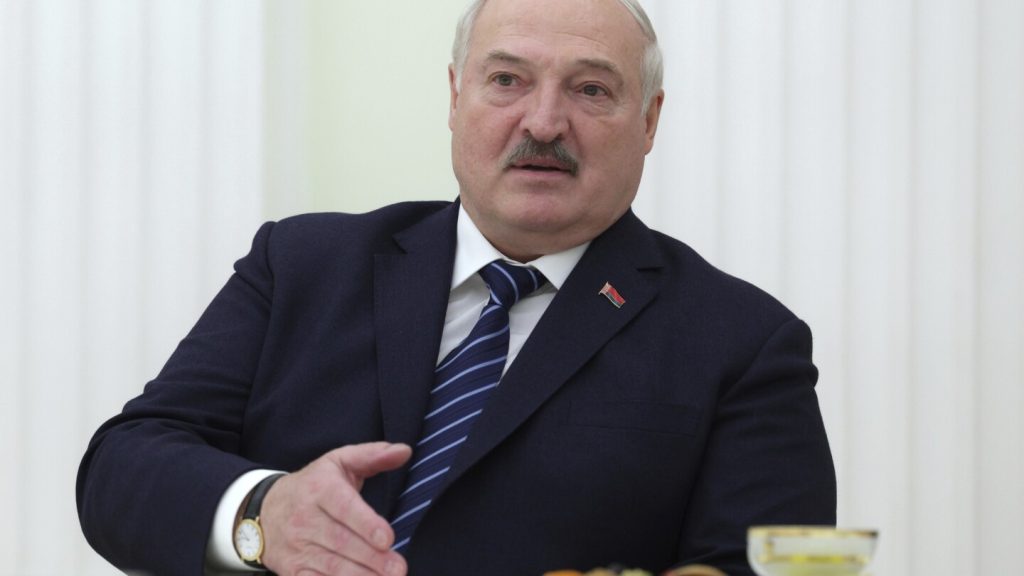Nizkiz, a famous dissident rock band in Belarus, has been convicted and designated as extremist by the authorities, along with its three members. The band was sentenced to two years of correctional labor, in the latest crackdown on dissent in the country. The members were charged with organizing and plotting actions that violated public order. The band gained popularity in 2020 during mass protests against President Alexander Lukashenko, with their song “Rules” becoming an anthem for the protests. The government responded to the protests with a brutal crackdown, arresting thousands of people and labeling many as extremists.
The band’s music video for “Rules” was filmed at one of the demonstrations against Lukashenko, further angering the authorities. In addition to the sentencing, Nizkiz and its musicians have been added to the state registry of extremists, effectively banning their songs and putting their fans at risk of prosecution. The band, founded in 2008, has been a voice for dissent in Belarus, and its members have been behind bars since January 2024, initially facing minor charges that later escalated to a criminal case.
Human rights organizations have declared the Nizkiz members as political prisoners, joining the ranks of over 1,300 others in Belarus. The Viasna human rights center highlighted the plight of the band and its musicians, calling for international solidarity with Belarusian artists facing government repression. The Nobel Peace Prize winner Ales Bialiatsky, the founder of Viasna, is among those imprisoned in Belarus due to political reasons. The ongoing crackdown on dissent in the country has drawn condemnation from human rights activists and opposition leaders.
Opposition leader Sviatlana Tsikhanouskaya has called on musicians worldwide to stand in solidarity with the convicted members of Nizkiz and all Belarusian artists facing persecution. She criticized the Belarusian regime for its relentless attack on the country’s culture and music scene, noting that Nizkiz’s songs were a symbol of freedom during the 2020 protests. Tsikhanouskaya described the detention and conviction of the band as a shameful act of revenge by the regime, targeting those who dared to speak out against authoritarian rule. The crackdown on dissent in Belarus has raised concerns internationally and has been condemned by various governments and human rights organizations.
The sentencing of Nizkiz and its members reflects the escalation of repression against dissent in Belarus, as the Lukashenko regime seeks to silence any form of opposition or criticism. The use of the extremist label to target artists and musicians who express dissent through their work is a worrying trend that threatens freedom of expression in the country. The banning of the band’s songs and the inclusion of its members in the state registry of extremists symbolize the authorities’ attempts to suppress voices of dissent and control the cultural landscape in Belarus. The international community has a responsibility to speak out against such violations of human rights and show support for those facing persecution for their peaceful activism.


